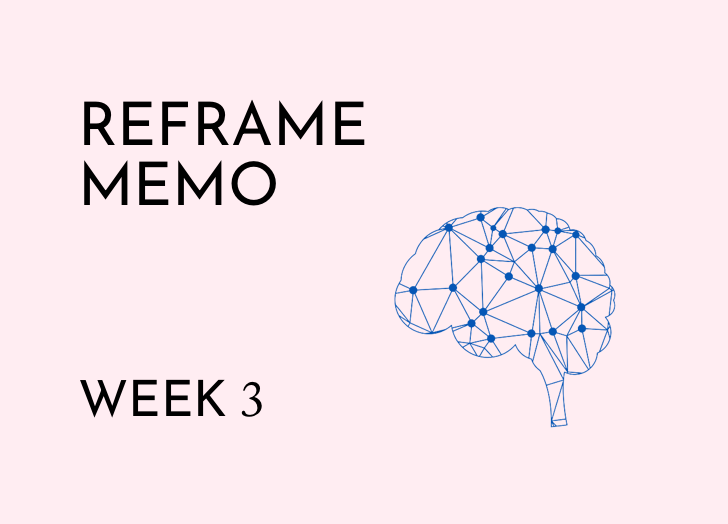Reframe Memo #03
Intuition, Cognitive Biases, Complex Decisions, Mindful Responses and Creativity
This week, I’m exploring the interplay between intuition and analytical thinking. the five reframes will help you harness both your gut feelings and logical reasoning to make more balanced decisions. Let's dive in!
I.
Balancing Intuition and Analysis
Transform Gut Feelings into Informed Choices
Your gut feeling is not your friend or enemy, but a starting point. Acknowledge your intuitive response, then pause to examine it.
Engage your analytical mind to dissect your initial reaction. What evidence supports or challenges your instinct?
The sweet spot lies in the dialogue between intuition and analysis. Let them inform each other, not compete.
Reflection Question: Think of a recent decision. How did your intuition align with your analytical conclusion?
For Instance: Reflect on the recent on-sale item you purchased, did you go by your gut feeling? Or did you analyse your purchase before buying? Was your gut feeling in alignment with your analysis?
Implementation Difficulty: 3/5
II.
Overcoming Cognitive Biases
Unmask Your Hidden Biases
Your mind's shortcuts are both a blessing and a curse. Recognize that your first impression may be clouded by bias.
Question your assumptions. What alternative explanations or perspectives have you not considered?
Embrace the discomfort of uncertainty. It's the price of admission for clearer thinking and better decisions.
Exercise Question: Identify one bias you might have about any current situation in your life. How could you challenge it?
For Instance: You might instantly dislike a new person in your life or a new team member due to a similarity with a past difficult person or colleague. Recognizing this bias allows you to give them a fair chance.
Implementation Difficulty: 4/5
III.
Making Complex Decisions
Conquer Complexity with Clarity
In the face of complexity, resist the urge to simplify prematurely. Sit with the full scope of the challenge.
Break down the problem into smaller, manageable parts. What specific questions can you answer to illuminate the whole?
Synthesize your analysis with your intuition. Your reasoned conclusion should feel right, not just look right on paper.
Reflection Question: What complex decision are you facing? What simplifying urge you have? How can you break it down into smaller questions?
For Instance: You are about to purchase a new home or move to a new city. Ask youself are you simplifying? List out all factors (career, family, lifestyle) and analyze each separately before making a holistic decision.
Implementation Difficulty: 5/5
IV.
Cultivating Mindful Responses
Ride the Waves of Emotion with Mindfulness
Your automatic reactions are not your destiny. The space between stimulus and response is where your power lies.
Practice pausing before reacting. What additional information or perspective might change your initial impulse?
Mindful responses aren't about suppressing emotions, but about channeling them productively alongside reason.
Exercise: Next time you feel a strong reaction, count to 10 before responding. Notice any change in your response.
For Instance: If in a conversation you receive what appears to be a scathing remark, your initial reaction might be defensive. Pausing allows you to consider the remark objectively and respond constructively.
Implementation Difficulty: 3/5
V.
Enhancing Creativity through Structured Thinking
Unleash Creativity Through Structure
Creativity isn't just about free-flowing ideas. It's about giving your imagination a playground with defined boundaries.
Apply systematic thinking to your creative process. What patterns or frameworks can you use to generate novel ideas?
The most innovative solutions often emerge when intuitive leaps are grounded in analytical rigor. Embrace both.
Reflection Question: What creative project could benefit from more structure? How might you apply a framework to it?
Implementation Difficulty: 4/5
Quick Tip: Start small. Choose one reframe to practice this week. Small, consistent steps lead to significant mental shifts.
That's all for this memo. See you in the next one!
Stay genuine! Stay authentic!
Nik Pathran





